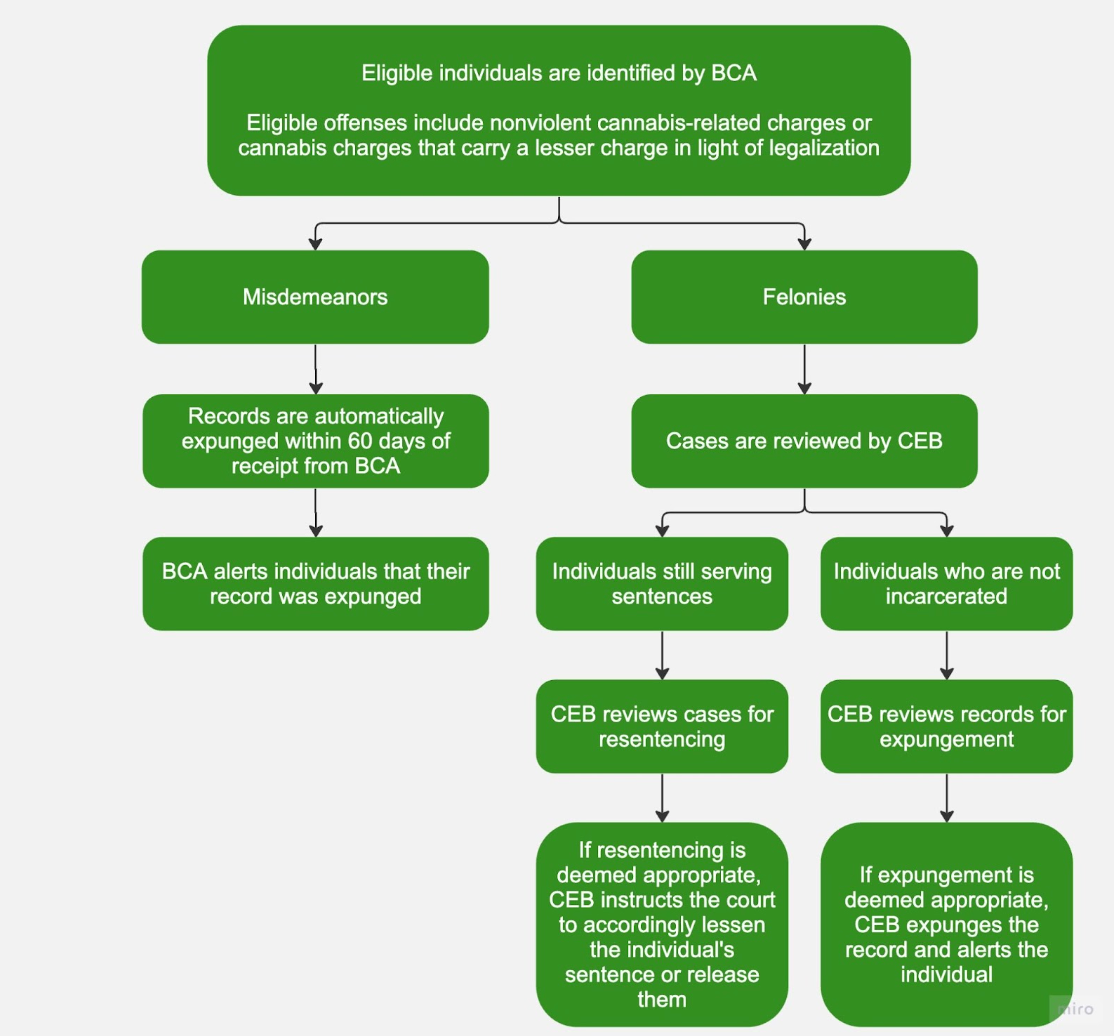Criminal Justice Provisions in Minnesota’s Legalization Bill (HF 100)
Read LPP's full press statement on Minnesota's legalization through HF 100.
As a part of its legalization bill, Minnesota included processes to provide retroactive relief for individuals who have been criminalized for cannabis. This includes both record clearance for individuals who are not incarcerated, as well as resentencing for individuals who are still serving sentences--both of which are LPP policy priorities (read more here). To better understand how these critical relief processes work and who is eligible for them, read below:
Expungement for misdemeanor cannabis charges
- State-initiated record clearance process for petty misdemeanor and misdemeanor marijuana charges.
- The Bureau of Criminal Apprehension (BCA) will identify eligible records and bring them to the court for expungement, without requiring a petition from record holders.
- The court must dismiss charges and expunge records within 60 days of receiving them from BCA.
- Once the record is expunged, BCA must make a reasonable effort to notify an individual of their expungement.
Expungement for felony cannabis charges
- State-initiated process to consider felony cannabis charges for record clearance, as well as any misdemeanor records that were not expunged by the aforementioned process.
- BCA will identify eligible offenses and bring them to the newly created Cannabis Expungement Board (CEB) for review.
- An individual is eligible for record clearance under this process if they were charged for a nonviolent felony cannabis offense or any felony cannabis-related activity that now carries a lesser charge in light of new legislation.
- Once the record is expunged, CEB will notify individuals that their record was cleared.
Resentencing for felony cannabis charges
- State-initiated resentencing process for individuals still serving sentences for felony cannabis charges.
- BCA will identify eligible offenses and bring them to CEB for review.
- An individual is eligible for resentencing under this process if they were charged for a nonviolent cannabis offense or any cannabis-related activity that now carries a lesser charge in light of new legislation.
- To evaluate resentencing, CEB will consider the original offense and whether the individual would pose a danger to the public or be compatible with society’s welfare if released.
- Once the record is reviewed, CEB will instruct the court to lessen the sentence or release the individual, if applicable.
Estimated impact
according to BCA
- There are an estimated 66,000 misdemeanor marijuana records and 9,818 of them have actual charges, meaning a majority of the records are non charges.
- There are an estimated 230,000 felony marijuana records and 83,909 of them have actual charges, meaning a majority of the records are non charges.
About the Cannabis Expungement Board
- The CEB will be composed of: the chief justice of the supreme court, or a designee; the attorney general or a designee; a public defender (appointed by the governor); the commissioner of corrections or a designee; a public member with experience as an advocate for victim's rights (appointed by the governor); and an executive director who is knowledgeable about expungement law and criminal justice (appointed by the governor).
- The CEBwill hold meetings on a monthly basis and they will be open to the public.
- The CEB must hold a meeting when it takes formal action to either approve or deny a person’s charge as being eligible for expungement or resentencing.
Visualizing the Process







